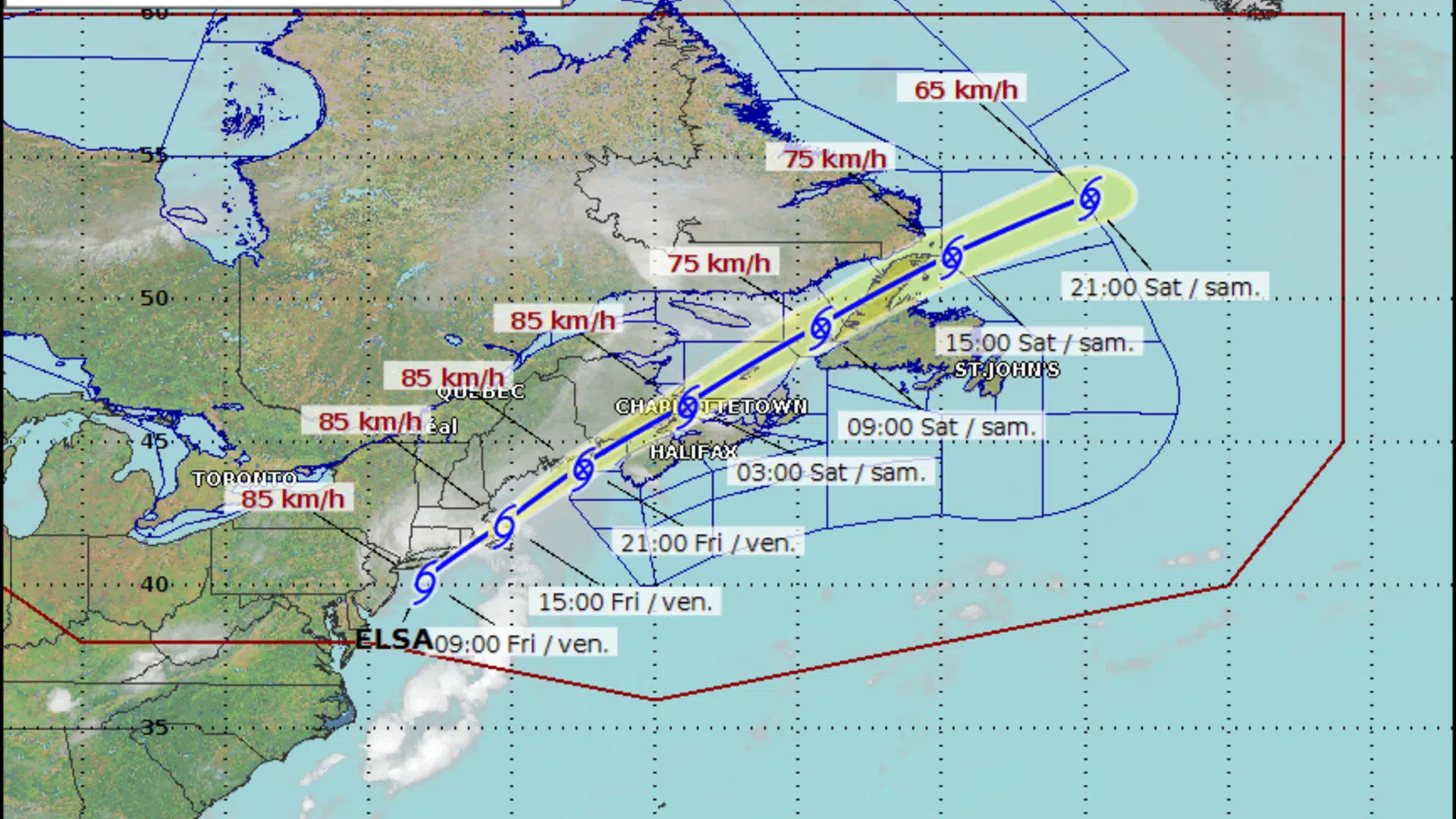Tropical storm Elsa is now just a few hours away from making its arrival in southern New Brunswick.
Forecasters say the centre of Elsa was located southeast of New York City as of 9 a.m. Friday.
“From what we can see on our satellite imagery, it has certainly begun that process to become a post-tropical storm,” Bob Robichaud, a meteorologist with the Canadian Hurricane Centre, said in an interview Friday morning.
But even as a post-tropical storm, forecasters say it will still bring a lot of rain to parts of New Brunswick.
Rain from a trough moving into New Brunswick from Quebec began impacting the province early Friday.
Robichaud said they expect the centre of Elsa to enter the Bay of Fundy around mid-evening.
“That’s when we should start to see these heaviest rains start to move into extreme southwestern portions of the province,” he said. “From there, that whole area of rain should gradually start to move toward the northeast.
The heaviest rains should be southeast of a line running from the Acadian Peninsula to the Woodstock area, said Robichaud.
Most communities can expect 50 to 80 millimetres of rain, but some areas could see 100 millimetres or more by Saturday morning.
Forecasters say wind gusts up to 70 kilometres per hour can also be expected near the Fundy coast.
“At this point, it’s even an if because, given the current track, we expect some of those strongest winds, even though they’re not going to be damaging winds or anything like that, should be a bit further to the southeast so over the Bay of Fundy and into Nova Scotia,” said Robichaud.
The heaviest rain should come to an end by early Saturday morning, leaving behind just a few lingering showers, he said.
“Looking out ahead a couple of weeks, there doesn’t seem to be any kind of tropical activity bubbling, so once Elsa is gone, we get a break for a little while from a tropical perspective.”
Tropical storm #Elsa is currently passing east of New York, still expected to reach Atlantic Canada this evening as a post-tropical storm. Latest info at: https://t.co/Iyohs0e8hK pic.twitter.com/Rw6X6AIkcL
— ECCC Canadian Hurricane Centre (@ECCC_CHC) July 9, 2021








